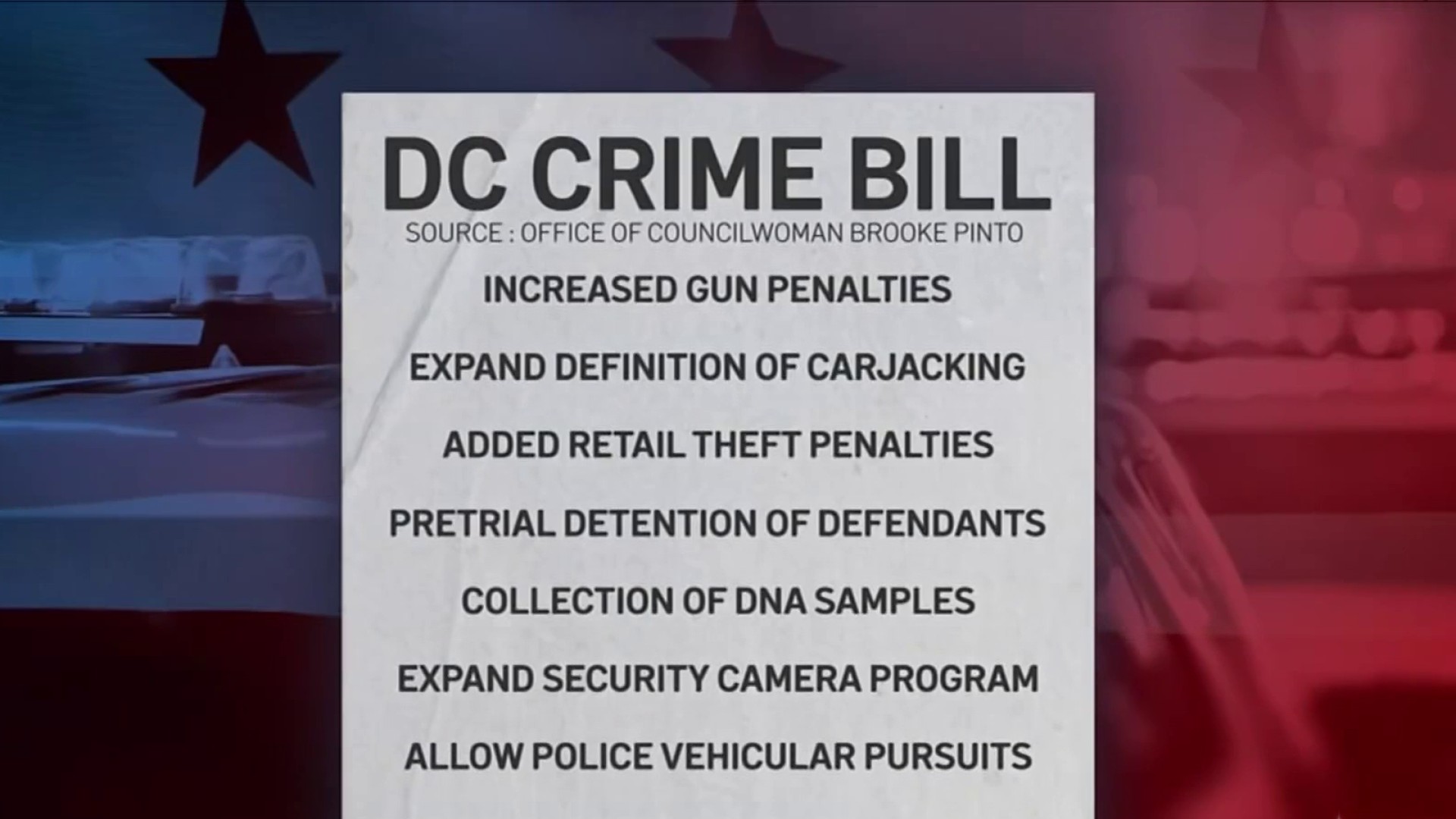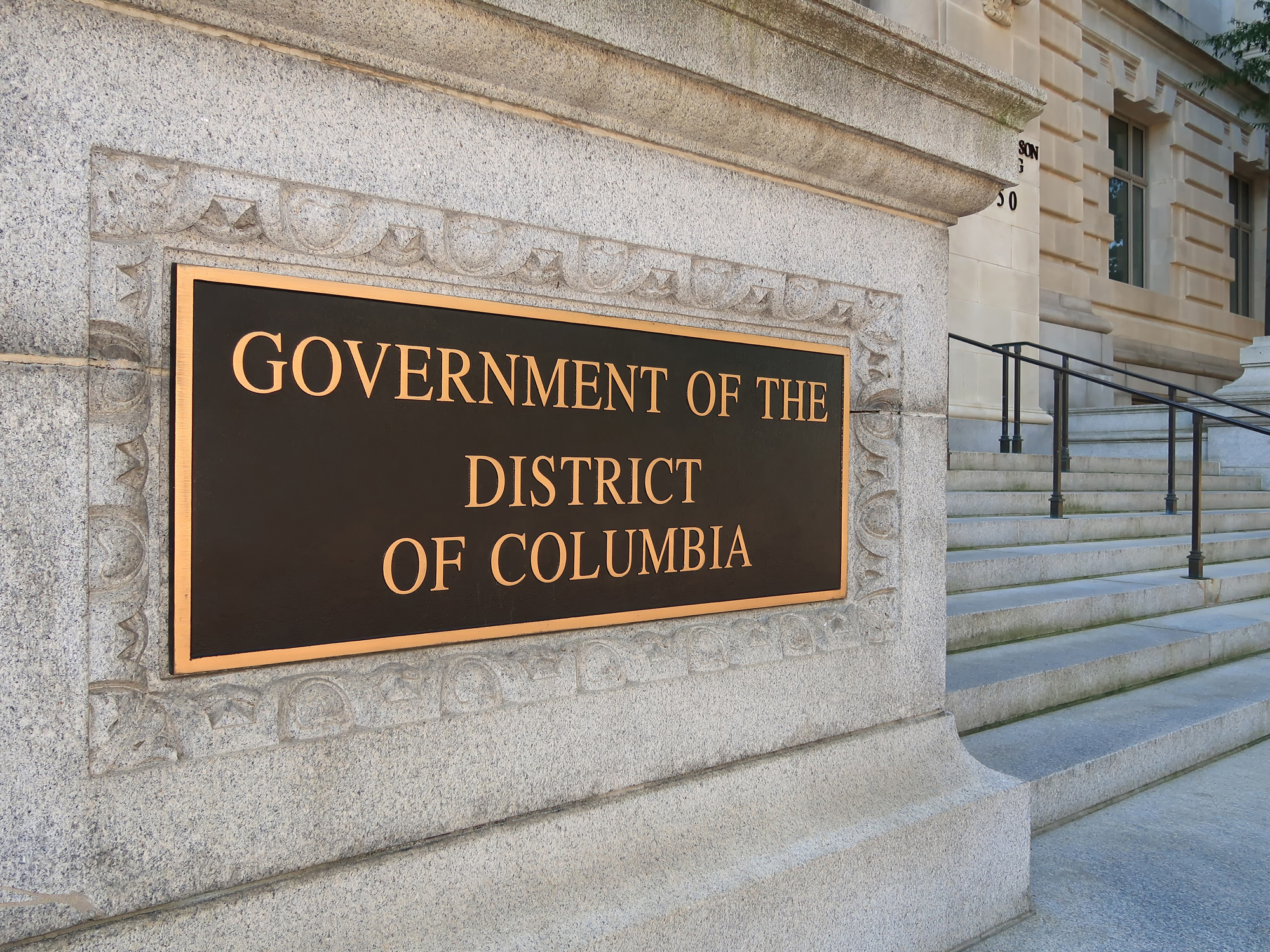The D.C. Council gave initial approval Tuesday to a comprehensive crime bill, aiming to reduce homicides, carjackings and other violent crime, especially among young people.
The long-awaited first of two votes passed without a controversial provision that would allow police to collect DNA when a person is arrested.
An overflow crowd filled the Council chamber and the hallway outside. Several times during the hearing, audience members vocalized their opposition to portions of the bill, leading Council Chairman Phil Mendelson to threaten to clear the room.
"We can clear the chamber, which I really don't want to do, but this is not a public meeting. I'm sorry," he said. "But this is a meeting of the Council that's open to the public."
We're making it easier for you to find stories that matter with our new newsletter — The 4Front. Sign up here and get news that is important for you to your inbox.
The Secure DC Omnibus Amendment Act of 2024 takes parts of legislation that either previously passed on an emergency basis or previously did not make it out of committees.
Its provisions would increase penalties for gun crimes. For instance, firing a gun in public would be a felony.
It would make it easier for judges to order pretrial detention for those accused of violent crimes – both adults and juveniles.
Councilmember Kenyan McDuffie expressed concerns about allowing police to swab a suspect for DNA samples at the time of the arrest.
"The privacy and rights of the innocent should be preserved, and let us not forget, we are all innocent until we are proven guilty," he said.
After some debate, the Council voted 9-4 to remove the provision.
Mendelson outlined some of the provisions at a legislative briefing on Monday, saying the bill refines language on vehicle chases and chokeholds.
In one of the more controversial sections of the bill, Mendelson said it refines the circumstances under which police can pursue a vehicle, citing concerns that the current law is too restrictive.
“For instance, a carjacking where there is an infant in the backseat – we’ve heard those reports. Of course, it would make sense that the police could pursue. It’s never been the council’s intent that there not be car chases,” he said.
The bill also addresses the increasing in carjackings in the District by more clearly defining what a carjacking is. It would mean a person being forcibly removed from a vehicle wouldn’t be the only circumstances that would qualify the crime as a carjacking, making it easier to prosecute.
“If the vehicle is proximate and the keys are being stolen by force or threat, that’s not just a robbery; that’s a carjacking,” Mendelson said.
Other provisions cover retail theft, as stores lock away merchandise or close for good.
“For repeat thieves who may be stealing at a misdemeanor level, after a certain number of arrests or convictions, they could be prosecuted as felons,” Mendelson said.
Some of the bill’s provisions were amended and refined at the last minute. Introduced by Council Member Brooke Pinto, the bill has the support of the Fraternal Order of Police.
Human rights groups have condemned the bill for language regarding police pursuits and searches allowed in designated drug-free zones.
Some of the provisions in the bill require funding, which is not part of the legislation and will require the Council and mayor to figure out.
Sign up for our Breaking newsletter to get the most urgent news stories in your inbox.
Mendelson said that in the long term, D.C. can lower crime by improving education and reducing poverty, but that right now, deterrence is necessary.
Mendelson, Mayor Muriel Bowser and Attorney General Brian Schwalb will send a letter to the U.S. Senate asking that they move quickly on the nominations of seven judges to the D.C. Superior Court amid nearly a dozen vacancies. District officials say filling those positions would go a long way toward allowing more cases to be handled quickly, ultimately keeping more criminals off the street.




